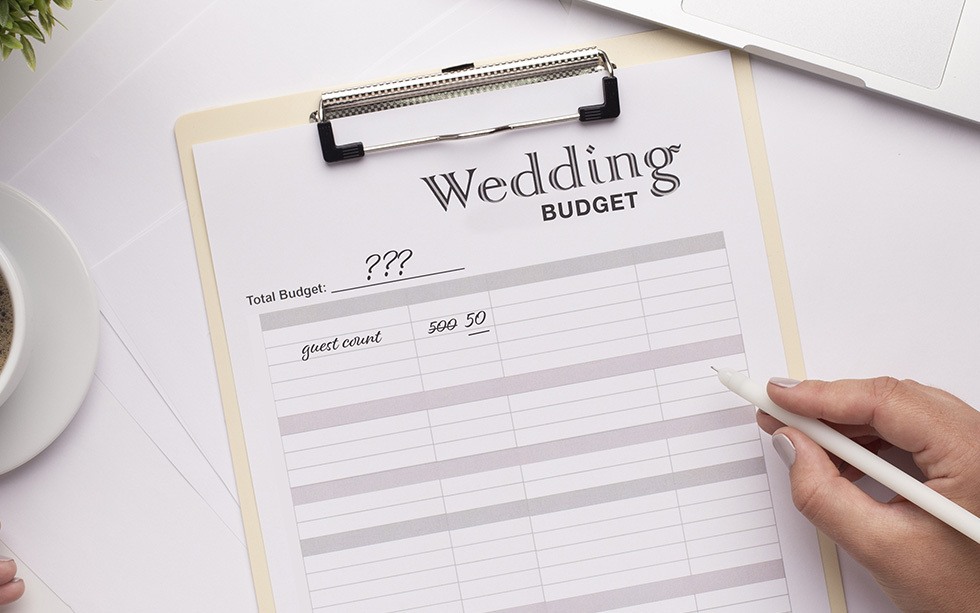
We’ve all heard that we shouldn’t discuss politics, religion, or money in polite company. But weddings make for strange etiquette outcomes, and if you want to properly plan your wedding, you can’t avoid a budget discussion. This talk doesn’t have to be painful, though, and can help you plan for the wedding you’ve always wanted – but with a budget that won’t leave you homeless or bankrupt.
Why Your Wedding Budget Matters
You might conceive of your wedding budget as an amorphous number that you’ll figure out some time in the future. But your budget matters right now. Without an accurate budget, you have no way of knowing how many guests you can afford to invite, which venues are options, and how much you can spend on photography, flowers, your dress, and other wedding day essentials. If you don’t plan your budget early, you’re almost guaranteed to go over budget, and that means you might not be able to afford some of the items you want the most as the big day rolls around.
Creating Your Wedding Budget
You need to create your budget early, and be as specific and detailed as possible. Sit down with everyone who’s contributing something to your wedding to get an idea for how much they can contribute and whether there are any strings attached. If you’re paying for it by yourself, you’ll need to examine your previous spending and determine how much disposable income you have to expend on your wedding. No matter what else you do, never put your wedding on a credit card or take out a loan. There’s no benefit to beginning your marriage in debt, and doing so can stress your relationship.
How to Stick to Your Wedding Budget
One of the biggest challenges of making a wedding budget is being able to stick to it when you’re tempted by gorgeous flowers or a one-of-a-kind dress. Try these tips to live within your budget:
• Create a cushion in your budget. For every thousand dollars you spend, set aside a hundred dollars. For example, if you have a $10,000 budget, plan to spend $9,000. This gives you some wiggle room if an unexpected expense rears its ugly head.
• Determine how much you want to spend on each individual item, then stick to it. Don’t try to hire photographers or florists who are out of your price range and then talk them down.
• Try dividing your budget into envelopes. When the money for a particular item, such as jewelry, is gone, you can’t spend anymore.
• Be upfront with your vendors about how much you can afford to spend, and ask for a clear cost estimate and a contract.
Keeping your wedding budget under control now will give you and yours the practice you need to manage money together. It will also ensure you start off married life relatively stress-free, rather than drowning in wedding-related debt.

